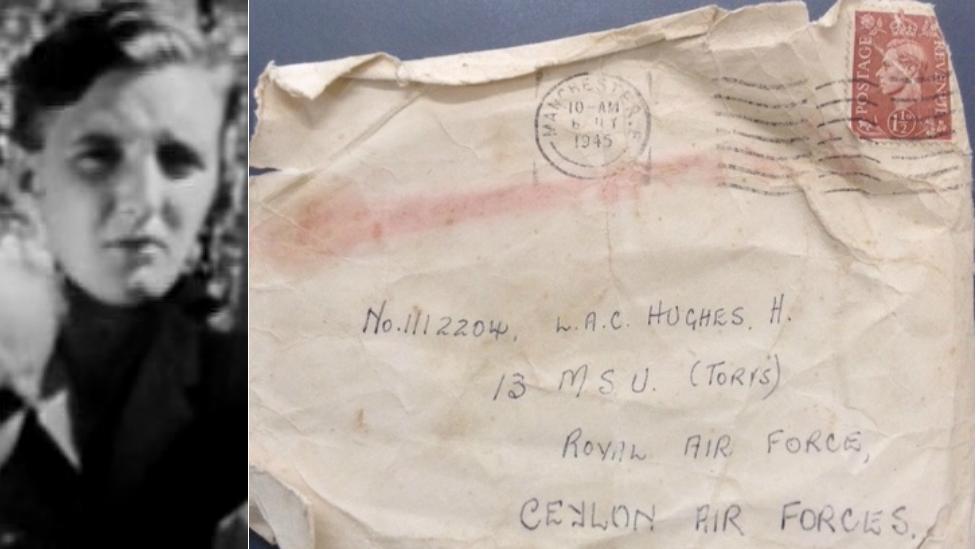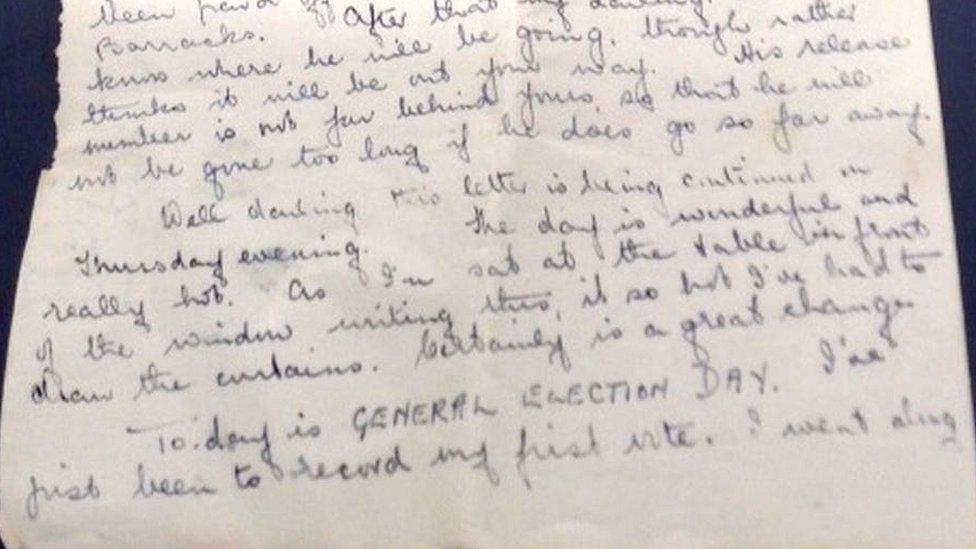World War Two love letter found in Asda's lost property box
- Published

Ms Adamson used information in the letter to find footage of LAC Hughes shot during the war
A "cherished" love letter from a woman to her World War Two sweetheart has been discovered in a supermarket's lost property box.
It was found by checkout operator Stacey Adamson at Asda's store in Leigh, Greater Manchester.
The letter was sent by "Dorothy" to leading aircraftman "Harry" Hughes in Ceylon - now Sri Lanka - in 1945.
Ms Adamson is now trying to trace the couple, saying she wants to reunite them with the "clearly cherished" note.
Footage of "Harry" Hughes, the recipient of the letter (courtesy of North West Film Archive at Manchester Metropolitan University)
"Dorothy", who lived in Kinver Road, New Moston, started writing the letter on 3 July 1945 and wrote of life in Manchester and how she and Harry would get married after the war.
She went on to mention that "today is general election day", suggesting her note was completed two days later, and asks "Harry" if he was able to vote, as "the Government seem to have made a mess of this voting business for the Forces".
She also wrote about his brother Frank returning on leave, saying his parents were "pleased" that he was back, but "as usual, your mother is saying how untidy the house is when he is home".

The letter includes a line about it being the day of the general election, which was on 5 July 1945
Ms Adamson said she had been clearing the lost property box when she spotted a crumpled envelope.
"It just caught my eye... because you could tell it was really old," she said.
Gleaning information from the letter, Ms Adamson was able to find footage of LAC Hughes that had been put online by the North West Film Archive as part of Calling Blighty, external, a project aimed at identifying servicemen who had been captured in 12 films.
The films, made between 1944 and 1946, are recordings of mostly servicemen - with a few women - captured for their families to see in local cinemas back in the United Kingdom.
Ms Adamson posted the letter, along with the footage, on Facebook, but while it has been shared by many users, no-one has yet come forward to identify it.
Her colleague Gwen Appleton asked anyone with information to get in touch, adding: "We're very keen to find out the story behind this letter".